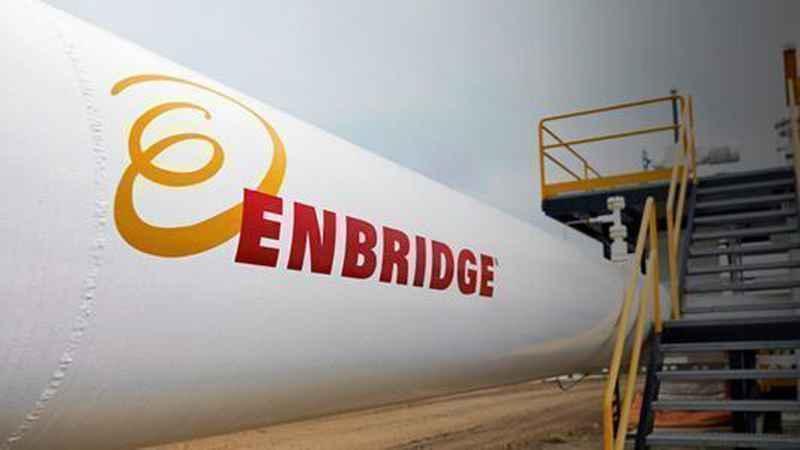Enbridge Urges Canadian Regulator to Not Intervene in Pipeline Plan
CALGARY, Alberta, Sept 11 (Reuters) - Enbridge Inc called on Canada's energy regulator to ignore calls from some of its shippers and avoid intervening in the pipeline company's contentious proposal to revamp contracts on its Mainline network.

The written submission to the Canada Energy Regulator (CER) is the latest salvo in a dispute between Calgary-based Enbridge and some of Canada's biggest oil companies over the future of the Mainline network.
The Mainline is North America's biggest pipeline system and ships the bulk of Canadian crude exports to the United States. It currently allocates capacity according to monthly nominations from shippers, and Enbridge is proposing to switch to long-term fixed-volume contracts on 90% of the pipeline.
Enbridge launched a two-month open season to solicit bids for committed capacity on Aug. 2 but shippers including Canadian Natural Resources Ltd and Suncor Energy complained the terms and tolls on offer were unfair and urged the regulator to intervene in the open season.
The CER agreed to hold a fast-track process to gather comment. Last week 33 interested parties including the Canadian Association of Petroleum Producers waded into the dispute, laying out their support or opposition to Enbridge's plans.
In its answering letter, Enbridge said the CER should avoid taking the unprecedented step of intervening in a pipeline open season. Instead the CER should stick to the usual practice of holding a regulatory review of the terms and tolls offered, once Enbridge makes a formal application at the end of the year.
By intervening early "this process would delay business, impose considerable regulatory burden on all parties, and require the regulator to micro-manage service offerings," Enbridge said in the letter.
Enbridge also argued the regulator had no authority to halt the open season, as some shippers have called for. The pipeline company said it had tried to "strike a balance" between its own position and the different positions of stakeholders, some of whom had asked for the Mainline to switch to firm service contracts to give more certainty on capacity and tolls.
Referring to last week's submissions to the CER, Enbridge said companies that filed letters in support of their proposal ship approximately 30% of crude volumes on the Mainline, while those that filed letters in opposition made up 20% of volumes. (Reporting by Nia Williams Editing by Tom Brown)
Related News
Related News

- Phillips 66 to Shut LA Oil Refinery, Ending Major Gasoline Output Amid Supply Concerns
- FERC Sides with Williams in Texas-Louisiana Pipeline Dispute with Energy Transfer
- U.S. Appeals Court Blocks Kinder Morgan’s Tennessee Pipeline Permits
- ConocoPhillips Eyes Sale of $1 Billion Permian Assets Amid Marathon Acquisition
- Valero Considers All Options, Including Sale, for California Refineries Amid Regulatory Pressure
- U.S. Appeals Court Blocks Kinder Morgan’s Tennessee Pipeline Permits
- Malaysia’s Oil Exports to China Surge Amid Broader Import Decline
- U.S. LNG Export Growth Faces Uncertainty as Trump’s Tariff Proposal Looms, Analysts Say
- Marathon Oil to Lay Off Over 500 Texas Workers Ahead of ConocoPhillips Merger
- Valero Considers All Options, Including Sale, for California Refineries Amid Regulatory Pressure




Comments